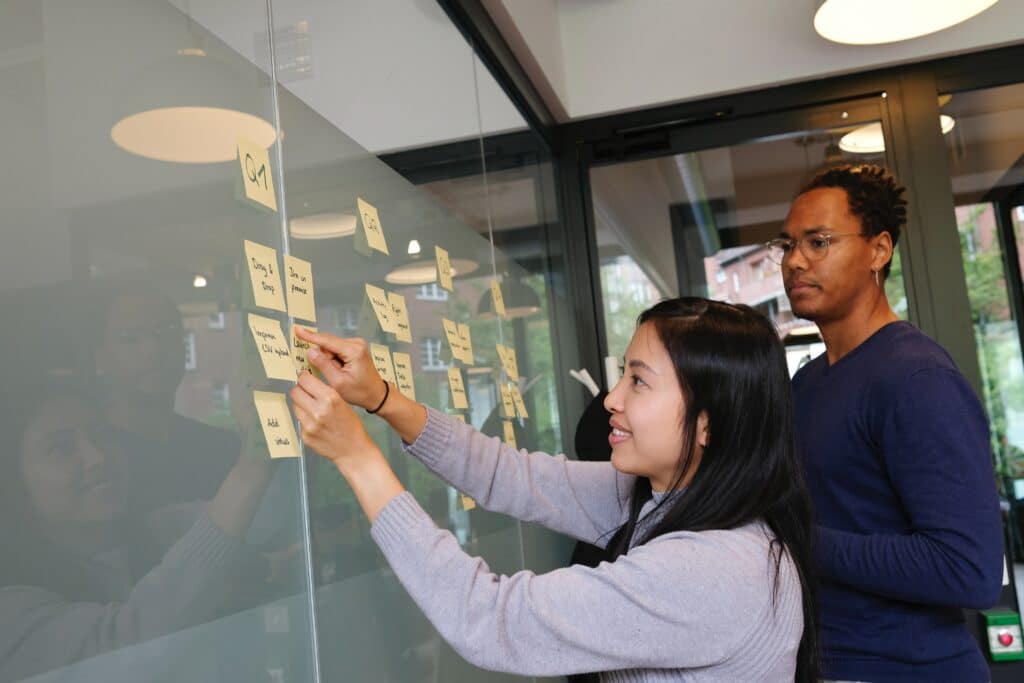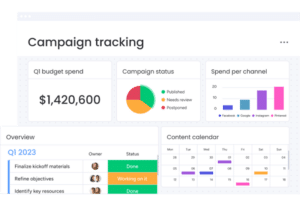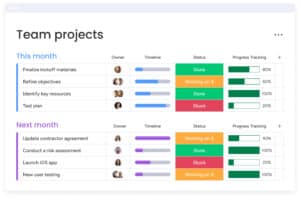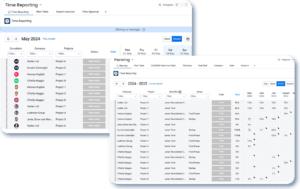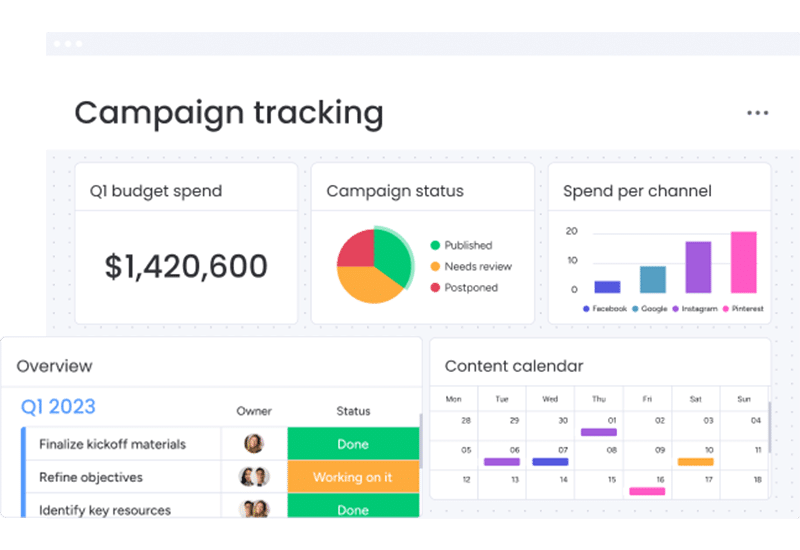Introduction
The Growing Importance of Effective Project Management
In today’s rapidly evolving business landscape, the ability to manage projects efficiently is more crucial than ever. Organizations are under increasing pressure to deliver high-quality products and services while adhering to tight schedules and budgets. The stakes are high, and the margin for error is slim. This is where effective project management workflows come into play. In the quest to enhance agility and efficiency, many organizations are turning to Kanban—an agile methodology rooted in lean principles. The role of Kanban boards in modern project management workflows has become increasingly pivotal for companies aiming to streamline operations and improve productivity.
What’s the Problem?
Traditional project management methods can sometimes be rigid, complex, and time-consuming, making them less adaptable to the ever-changing demands of modern business environments. These limitations often result in delayed projects, cost overruns, and a host of other challenges.
Why monday.com?
Among the plethora of tools available for implementing Kanban in your project management workflow, monday.com stands out as an exceptional platform. It offers intuitive Kanban boards that can be customized to suit the specific needs of any project, ensuring a more streamlined, efficient process.
What this Article will Cover
Understanding how to effectively integrate the role of Kanban boards in modern project management workflows can be a game-changer for businesses looking to stay ahead of the curve. By the end of this post, you’ll gain insights into how Kanban can revolutionize your project management processes, and how platforms like monday.com can make this transformation easier and more effective.
History of Kanban
The Birth of Kanban: A Brief Overview
The origins of Kanban can be traced back to the 1940s when it was developed as a part of the Toyota Production System. The automotive giant was seeking a system to improve efficiency and reduce waste, inspired by the just-in-time inventory systems of supermarkets. Little did they know that this simple, visual approach to workflow management would evolve into a methodology that plays a significant role in modern project management workflows around the globe.
Transition from Manufacturing to Project Management
Initially intended for manufacturing and supply chain management, Kanban eventually found its way into various other domains. This was facilitated by its flexible nature and universal applicability. The transition from being a tool used in factories to a method that defines the role of Kanban boards in modern project management workflows has been nothing short of revolutionary.
Evolution into the Digital Age
In recent years, the digital transformation has taken Kanban to new heights. Digital boards, made possible through platforms like monday.com, have enabled organizations to implement Kanban more efficiently and collaboratively. This digital shift has further solidified the role of Kanban boards in modern project management workflows, making them more accessible and adaptable than ever.
The Rise of Agile and Lean Principles
Kanban has also grown in popularity due to its compatibility with Agile and Lean principles, both of which emphasize flexibility, efficiency, and customer-centricity. The synergy between these methodologies and Kanban has made it an increasingly popular choice for organizations aiming to stay agile and competitive in the modern business landscape.
What is Kanban?
Understanding the Core Principles
Kanban is more than just a board with sticky notes. It’s a methodology grounded in specific principles designed to enhance workflow efficiency. Two core principles are to visualize the work and limit the amount of work in progress. By adhering to these principles, Kanban plays a significant role in modern project management workflows, driving teams toward streamlined operations and reduced bottlenecks.
The Basic Elements: Cards, Columns, and WIP Limits
To comprehend the role of Kanban boards in modern project management workflows, it’s important to understand its basic elements:
- Cards: Each card represents a task or item of work.
- Columns: These define stages of the workflow, usually starting with “To Do” and ending with “Done.”
- Work in Progress (WIP) Limits: These are constraints put on the amount of work in each stage to prevent overload.
The beauty of Kanban lies in its simplicity. The board gives an immediate visual snapshot of the workflow, making it easier to identify bottlenecks and areas for improvement.
The Flexibility of Kanban
One of the most remarkable aspects of Kanban is its adaptability. Whether you are a software development team working on complex projects or a marketing team handling multiple campaigns, Kanban can be tailored to meet your specific needs. This flexibility underscores the pivotal role of Kanban boards in modern project management workflows.
Digitalization and monday.com
In a digital age where remote work and collaborative tools are increasingly common, platforms like monday.com have enhanced the applicability of Kanban. With features that allow for real-time updates, custom columns, and integration with other systems, monday.com’s Kanban boards are a natural fit for modern project management workflows.
Omnitas Newsletter
Sign up for our monthly newsletter to stay up-to-date on our latest blog articles, videos and events!
Thank you!
You have successfully joined our subscriber list.
The Role of Kanban in Modern Project Management
Agility and Flexibility: Adapting in Real-Time
One of the most striking advantages of Kanban is its agility. In a rapidly evolving business landscape, adaptability is key. Traditional project management methodologies can often be rigid, requiring significant amounts of planning before a project even starts. Kanban, on the other hand, allows teams to adapt in real time, aligning perfectly with the needs and challenges of modern project management workflows.
Improved Visualization: Seeing is Believing
Visualization is at the heart of Kanban. By providing a visual layout of all tasks and their current statuses, Kanban boards make it easier to comprehend the state of a project at a glance. This clear visibility enhances decision-making and team collaboration, fortifying the role of Kanban boards in modern project management workflows.
Faster Cycle Times: Speed Without Sacrificing Quality
Traditional project management often suffers from long cycle times, leading to delays and increased costs. Kanban helps reduce these cycle times by making bottlenecks and hold-ups visible. With fewer bottlenecks, projects move smoothly from initiation to completion, highlighting the beneficial role of Kanban boards in modern project management workflows.
Decreased Waste: Doing More With Less
The origin of Kanban lies in lean manufacturing, where the focus is on reducing waste. By identifying bottlenecks and limiting work-in-progress, Kanban minimizes the time and resources wasted on unnecessary tasks or waiting periods. This, in turn, contributes to more efficient and effective project management.
monday.com: A Seamless Platform for Kanban
monday.com’s Kanban feature allows for a seamless integration of Kanban principles into your project management workflow. From setting WIP limits to real-time collaboration, monday.com offers a range of features that make it easier to reap the benefits of Kanban.
Advantages of Using a Digital Platform for Kanban
Accessibility: Kanban On-the-Go
One of the greatest benefits of digital Kanban boards is accessibility. Unlike physical boards, digital platforms can be accessed anytime, anywhere, granting team members the flexibility to manage tasks without being confined to a specific location. This accessibility further underscores the role of Kanban boards in modern project management workflows, as it aligns with the needs of increasingly remote or hybrid workforces.
Real-time Updates: Keeping Everyone on the Same Page
Real-time updates are another major advantage. Changes made to the board are instantly visible to all team members, ensuring that everyone is on the same page. This eliminates the confusion that can arise from outdated or conflicting information, making the project management process smoother and more effective.
Integration Capabilities: A Cohesive Ecosystem
In the modern business environment, tools rarely operate in isolation. This is where the integration capabilities of digital platforms shine. Platforms like monday.com allow for seamless integration with other software solutions. Additionally, monday.com itself can also be used for your other business operations, such as sales, marketing, HR etc. This means that you can centralize your departments in one platform, rendering integrations unnecessary. This highlights the role of Kanban boards in modern project management workflows by fostering a more cohesive and efficient operational ecosystem.
Customization and Scalability with monday.com
monday.com offers a range of customization options for your Kanban boards. From adding custom fields to creating automations that trigger under specific conditions, the platform provides a robust set of features that can adapt as your projects grow in complexity. This level of customization and scalability makes monday.com an excellent tool for enhancing the role of Kanban boards in modern project management workflows.
Data Analytics: Making Informed Decisions
Another advantage of using a digital platform like monday.com is the ability to analyze data. By tracking various metrics related to your projects, you can gain valuable insights into team performance, task durations, and bottlenecks, among other things. This data-driven approach can inform better decision-making, solidifying the role of Kanban boards in modern project management workflows.
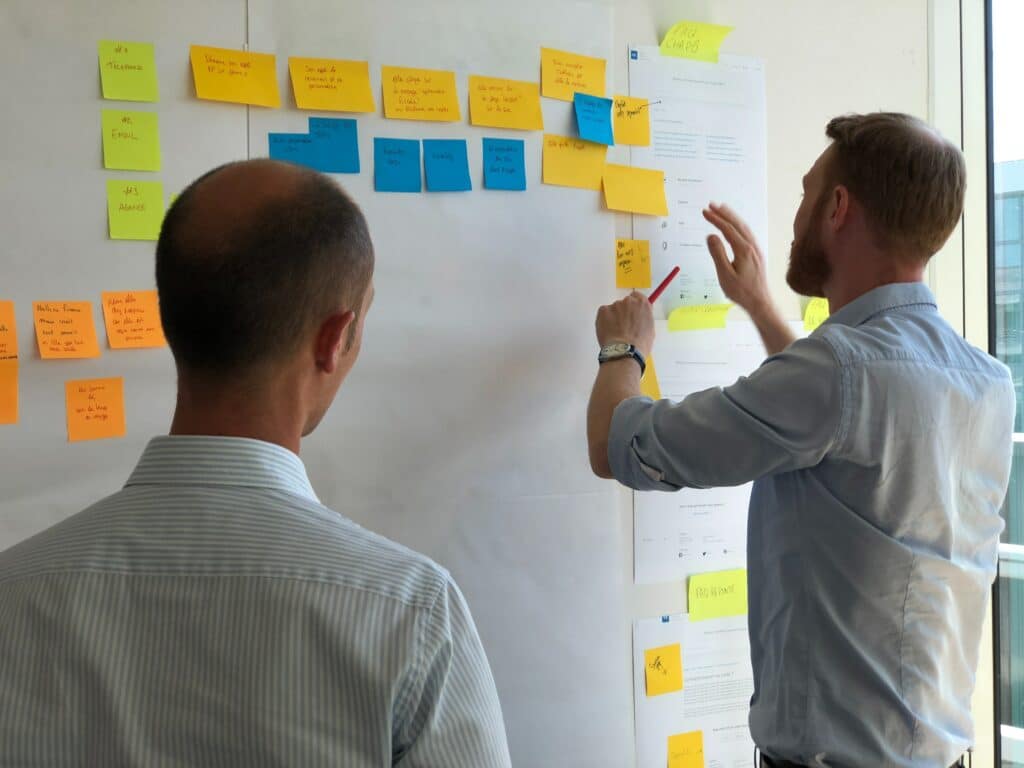
How to Implement Kanban with monday.com
Getting Started: Setting Up Your Board
Implementing Kanban using monday.com is a straightforward process. The platform offers pre-designed Kanban templates that can serve as a starting point. Once you’ve selected a template, you can customize it to align with your specific project needs. Adding tasks, setting deadlines, and designating team members are all done effortlessly through the platform’s intuitive interface.
Customization: Make it Your Own
One of the strongest features of monday.com’s Kanban boards is customization. You can add custom fields like text boxes, dropdowns, or numerical fields that are specific to your project’s needs. This makes monday.com an excellent tool for implementing Kanban boards tailored to your organization’s unique requirements.
Automation and Integrations: Streamlining Workflow
monday.com offers a host of automation and integration features. Whether it’s automating the movement of cards based on set conditions or integrating the board with your CRM, the possibilities are virtually endless. These advanced features enhance efficiency and enable a smoother transition when adopting Kanban methodologies.
Expert Guidance: The Value of Partnering with Omnitas
While monday.com provides a robust platform for Kanban, the process of adapting to a new methodology can still be daunting. This is where the value of expertise comes into play. Partnering with us at Omnitas for your monday.com Kanban implementation can make the transition seamless. With extensive experience in creating effective WorkFlows, processes, and business automation solutions, we can provide invaluable support. Our broad industry knowledge and managerial approach to problem-solving ensure that your Kanban boards are not just well-designed but also strategically aligned with your business objectives.
Ongoing Support and Adaptability
The ever-changing nature of projects demands a level of adaptability, and ongoing support is crucial for long-term success. We offer ongoing support and customer success managers who are committed to making sure you are well-equipped to tackle challenges. This ensures that the role of Kanban boards in your modern project management workflows continues to evolve in sync with your organizational needs.
Comparing Kanban with Other Project Management Methodologies
Traditional Project Management: A Rigorous Approach
Traditional Project Management, often characterized by the Waterfall methodology, involves a highly structured, phase-based approach. Everything from project scope to resource allocation is defined upfront, leaving little room for change. While this approach has its merits, it’s less adaptable compared to Kanban, which can seamlessly fit into the role of modern project management workflows.
Agile: A Framework for Adaptability
Agile methodologies, like Scrum, are often considered to be more adaptable than traditional approaches. However, even within Agile, there are different levels of flexibility. Scrum operates in sprints and focuses on time-boxed delivery, which may not suit all types of projects. In contrast, Kanban’s focus on continuous flow makes it even more adaptable, cementing its role in modern project management workflows.
ScrumBan: A Hybrid Solution
ScrumBan is a hybrid methodology that combines elements of both Scrum and Kanban. While Scrum provides the structure of sprints and roles, Kanban adds the ability to adapt in real-time. For teams that require both structure and flexibility, ScrumBan can be an effective solution.
Lean: Efficiency is Key
Lean project management is another methodology that, like Kanban, focuses on efficiency and the elimination of waste. However, while Lean is broader in scope, encompassing a wide range of practices aimed at waste reduction, Kanban specifically targets workflow efficiency. This makes Kanban boards a practical tool for implementing Lean principles in modern project management workflows.
monday.com: A Platform for Multiple Methodologies
One of the advantages of using a versatile platform like monday.com is the ability to implement various methodologies. Whether you’re using Waterfall, Agile, or Kanban, monday.com offers the flexibility to adapt to your chosen approach. Thereby complementing the role of Kanban boards in modern project management workflows.
Conclusion
The role of Kanban boards in modern project management workflows is becoming increasingly important. Organizations are looking for more flexible and efficient ways to manage their projects. With roots in lean manufacturing, Kanban brings a focus on reducing waste and improving flow, making it a fitting methodology for today’s fast-paced and ever-changing business landscape.
Digital platforms like monday.com have made it easier than ever to implement Kanban boards into your workflow. With customization options, real-time updates, and seamless integration capabilities, monday.com serves as a robust platform that adapts to the unique needs of any project.
Moreover, for those looking to take their Kanban implementation to the next level, the expertise provided by Omnitas can prove invaluable. With a deep understanding of workflow construction, business automation, and a managerial approach to problem-solving, we offer the guidance and support needed to make your Kanban journey a successful one.
As projects continue to evolve in complexity and scale, the adaptability and efficiency offered by Kanban are no longer just beneficial—they are essential. The role of Kanban boards in modern project management workflows is a testament to its enduring relevance and growing importance.
Take the Next Step with Omnitas
Ready to optimize your project management workflows with monday.com? Don’t embark on its journey alone. Reach out to us at Omnitas to ensure a smooth and effective implementation. With our expert guidance, you’ll navigate the complexities of project management effortlessly, ensuring long-term success. Contact us today to learn how we can help you make the most out of monday.com’s powerful features.

